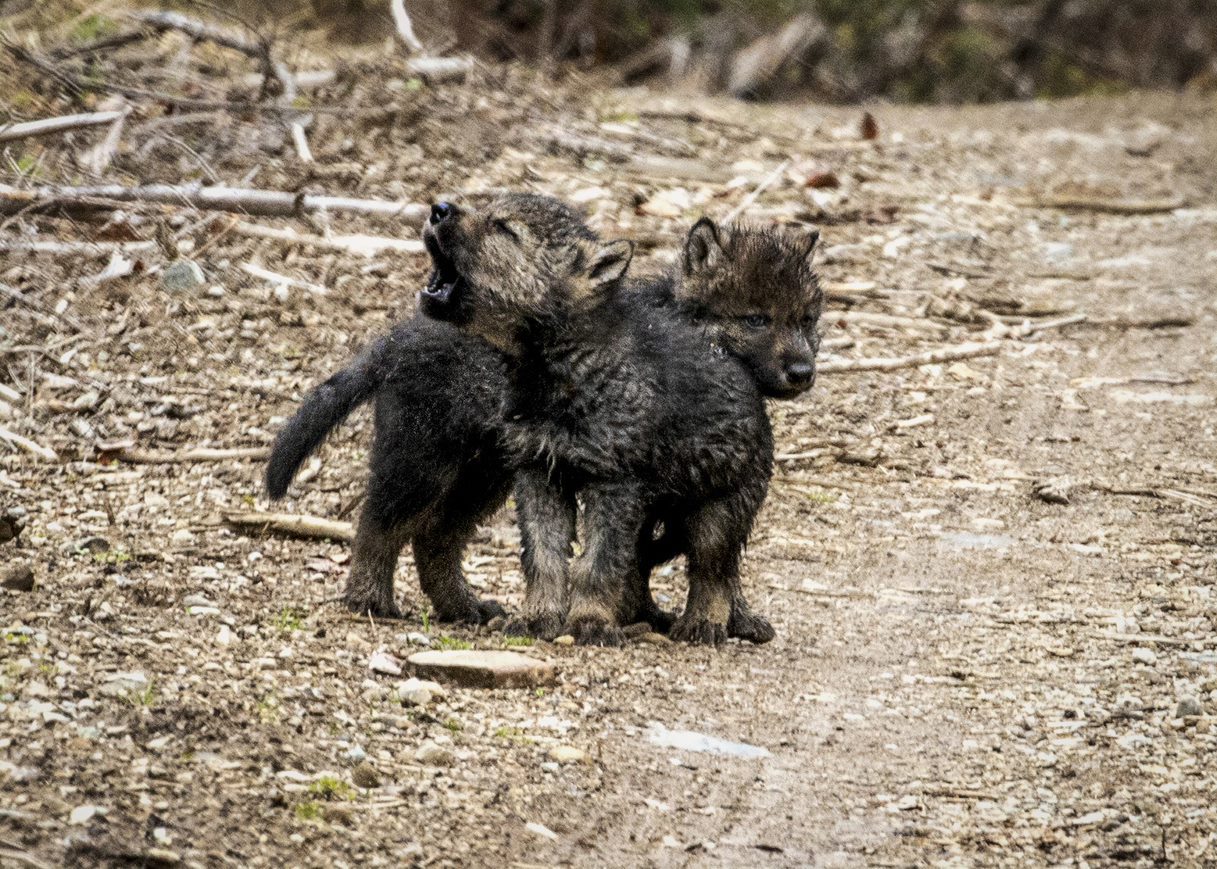Two dangerous poisons – strychnine and Compound 1080 (sodium monofluoroacetate) – are currently allowed to be used under federal permits to control large predators like wolves, coyotes and bears. Used mostly in Alberta and Saskatchewan as an indiscriminate means of protecting livestock, these poisons have still shown up in B.C. killing our wildlife and pets.
Although it is illegal under the BC Wildlife Act to use poisons to kill wolves, bears and coyotes without a permit, there have been several incidences of dogs and wolves being baited with strychnine in communities near the Alberta border. These poisons cause intense suffering and pain, and animals can experience seizures and asphyxiation before death hours or days later. No animal should have to die such an inhumane death.
Health Canada is the federal agency that approves poison use in wildlife control. In 2019, the BC SPCA submitted a thorough evidence-based assessment criteria for humaneness to Health Canada. Unfortunately, they announced in 2021 that humaneness would not be used in their criteria to assess what poisons should and shouldn’t be allowed.
In 2021, 8,929 Canadians (69% British Columbians) signed a federal e-petition to end the use of strychnine, Compound 1080 and sodium cyanide. In December 2021, the use of sodium cyanide was no longer permitted, as the product was cancelled by the manufacturer. The use of strychnine and Compound 1080 has been awaiting re-evaluation and a final decision from Health Canada, and a public consultation is now open.
Speak out to Health Canada against the use of these poisons – submit your comments on the Proposed Re-Evaluation Decision by November 29 at 11:59 PM.
Need help getting started? Consider these points to help you:
- Fill out your contact information.
- For consultation document, select “Other (Specify)”. Fill in document title “PRVD2022-18, Predacide Uses of Strychnine and Sodium Monofluoroacetate and their Associated End-use Products“.

- Add your comments. It’s best to write comments in your own words, but you can use our talking points below for guidance:
- The risks to animals and the environment using strychnine and Compound 1080 are unacceptable. These poisons are indiscriminate and widely regarded as inhumane by the American Veterinary Medical Association, Canadian Council on Animal Care and Canadian Veterinary Medical Association.
- These poisons are known to cause suffering and death for non-target animals – the mitigation measures listed will not prevent the hundreds of unintended deaths from happening.
- Both poisons are dangerous for pets – strychnine has killed more than 90 dogs in Western Canada over the past 20 years.
- Using poison and lethal control is not an effective solution for human-predator conflicts or addressing endangered caribou. The use of these poisons is unnecessary and dangerous.
Action Alerts
Be the first to know about actions you can take on behalf of animals – subscribe to Action Alerts:

